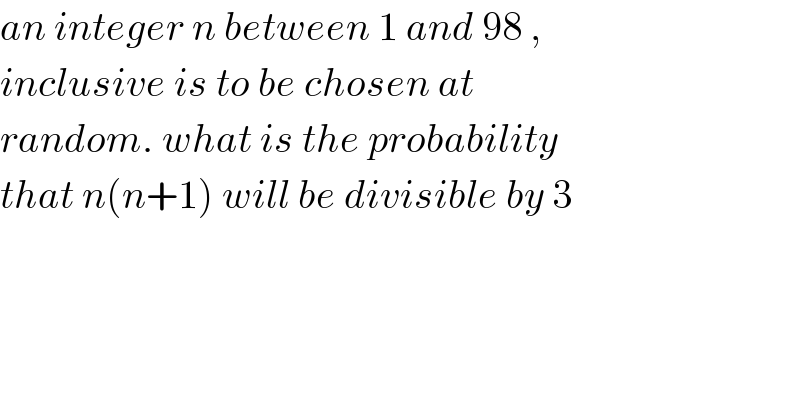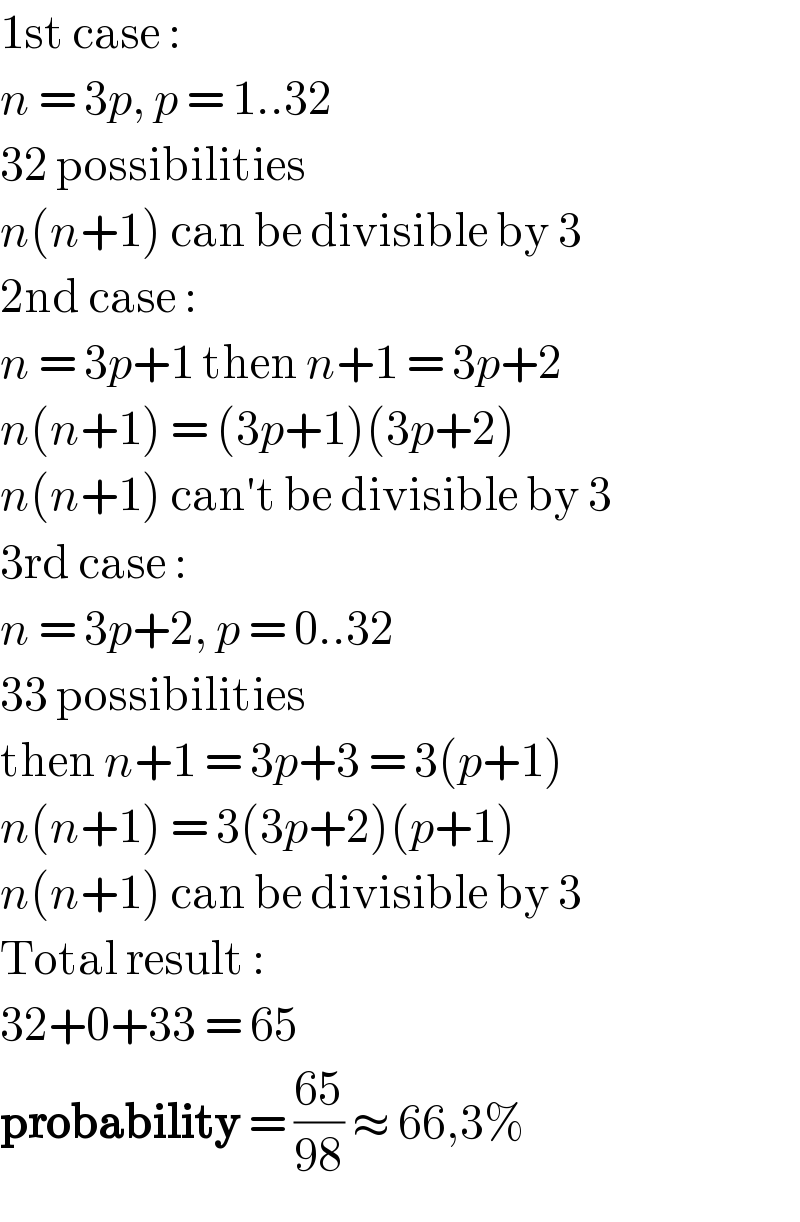
Question and Answers Forum
Previous in Permutation and Combination Next in Permutation and Combination
Question Number 103606 by bemath last updated on 16/Jul/20

Commented by bemath last updated on 16/Jul/20

Answered by OlafThorendsen last updated on 16/Jul/20

Answered by floor(10²Eta[1]) last updated on 16/Jul/20
![for n(n+1) be divisible by 3, we have 2 cases: 1)n is a multiple of 3 2)n+1 is a multiple of 3 [1, 98]→98 terms 1)AP: (3, 6, 9, ..., 96)→{a_n =3n} 3n=96⇒n=32(the AP has 32 terms) so the probability that n is a multiple of 3 is: P_1 =((32)/(98))=((16)/(49)) 2)AP: (2, 5, 8, ..., 95)→32 terms probability of n+1 multiple of 3: P_2 =((32)/(98))=((16)/(49)) ⇒probability that n(n+1) is divisible by 3: P_1 +P_2 =((32)/(49))≈65%](Q103612.png)
Commented by OlafThorendsen last updated on 16/Jul/20

Commented by floor(10²Eta[1]) last updated on 16/Jul/20

Answered by bobhans last updated on 16/Jul/20
![note that n(n+1) is not divisible by 3 precisely when n ≡ 1 (mod 3) ; that is n has remainder 1 upon division by 3. from 1 to 98 inclusive there are 33 such values of n. hence the desired probability equals to 1−((33)/(98)) = ((65)/(98)) . [ p(A) = 1−p(A^c ) ] □](Q103616.png)
